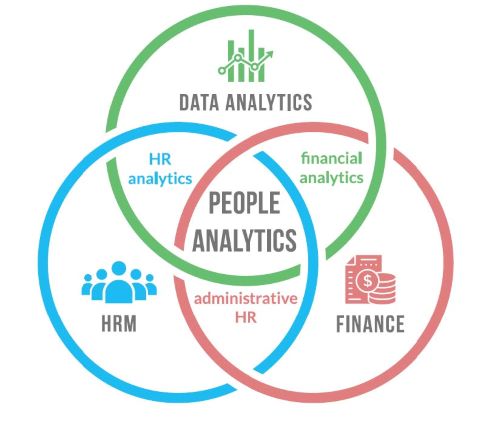With people analytics emerging as a vital discipline for modern HR professionals, the niche group The Living Wage, Executive Remuneration, Human Resource (HR) Data Analytics and Human Resource Outcomes hosted an MS Teams webinar titled People Analytics in Human Resource Management Practitioners on 29 May 2025. The session attracted an impressive audience of 123 participants, signalling a growing interest in data-informed human resource practices in South Africa and beyond.
The multi-purpose event was designed to raise awareness about the role and value of people analytics in HRM, as well as announcing the start of the Tshwane University of Technology’s exciting new CPD credit-bearing Short Learning Programme (SLP), bringing a timely and much-needed upskilling opportunity to the market.
Kicking off the event, Prof Molefe Maleka, niche leader and senior academic at TUT, outlined the purpose of the People Analytics SLP to equip HR practitioners with data-driven decision-making capabilities and reduce reliance on gut feel or intuition. According to him, analytics skills are not just “nice to have”, they are essential for strategic thinking, improving operational efficiency and ultimately, making HR a strategic business partner. The training, he explained, builds a foundation in metrics, Excel proficiency and storytelling, enabling participants to extract insights from data and communicate those insights effectively.
Key insights from Prof Maleka’s presentation
During his presentation, Prof Maleka provided real-world context to the concepts covered in the upcoming course. He introduced a powerful framework that outlines what’s currently “lacking” in HR - HR-optimisation, forecasting and correlation, describing these as forms of predictive and diagnostic analytics.
“For example,” he explained, “correlation can show that people with more experience in an organisation tend to earn higher salaries. Likewise, if there’s high attrition, predictive analytics can help us investigate the root causes.”
He emphasised that attendees of the SLP will gain hands-on exposure to regression techniques that help with forecasting, such as predicting future earnings based on years of service or experience level. These techniques are crucial in building strategic insights and informing planning processes.

Explaining the inter-connectedness of People Analytics competencies, Prof Maleka shared a graph by Erik van Vulpen, founder and Dean of AIHR (Academy to Innovate HR) and expert in shaping modern HR practices by bringing technological innovations into the HR context.
Excel as a data analytics tool
One of the highlights of Prof Maleka’s talk was the emphasis on Excel as a critical tool in people analytics. He addressed a common concern: “Previously, people avoided Excel because it required memorising formulas and statistical procedures.”
“However, with modern AI enhancements in Excel - including the introduction of tools like Copilot - the software has become significantly more user-friendly. Users can now use prompt engineering to perform complex analyses with ease. You can highlight your data and ask it to show the relationship between, say, compensation and experience,” he explained. “Excel will provide a step-by-step guide and even generate diagrams to visualise those relationships. This democratisation of analytics tools means that HR professionals no longer need a background in data science to make sense of workforce trends,” he said.
Cultivating business acumen and metrics to elevate the HR role
Another major theme in Prof Maleka’s talk was the need to cultivate business acumen within HR departments.
He noted how HR needs to speak the language of business. “How can HR be used to improve business performance? This is what’s currently missing in most HR literature.”
Participants in the SLP will be taught to interpret and apply key HR metrics, including:
- ROI in training and development;
- How people analytics can attract and retain employees;
- The link between remuneration and job satisfaction; and
- How job satisfaction predicts cost outcomes, such as employee turnover and recruitment expenses.
These insights empower HR professionals to quantify their impact and reduce costs associated with talent loss — a key factor in sustaining a competitive edge.
The Art of Storytelling in People Analytics
Towards the end of his presentation, Prof Maleka touched on a topic often overlooked in data training, storytelling. According to him, statistical techniques like regression are important, but business leaders care about statistical insights to make decisions, not equations.
Storytelling, translating complex analysis into clear, actionable insights, is a core component of the SLP. This will ensure that HR professionals can not only run the numbers but also influence strategic conversations in their organisations.
“When you present to business leaders, they don’t want to know how you did the regression. They want to know how it helps them gain a competitive advantage,” he explained.
The webinar also featured respected voices from the HR field, including Zogan Opperman, HR Director at Tsebo and Ms Irene Skosana, TUT’s HR Director. Both shared experiences from their leadership roles and stressed the importance of data-driven decision-making.
Their perspectives grounded the discussion in real-world relevance, showing that people analytics is more than theory; it is an evolving practice reshaping HR’s role across industries. Prof Maleka closed the session with a powerful reminder: “To shape the future of work, HR must embrace the future of data.” The overwhelming interest in the webinar and upcoming course affirms a growing demand for upskilling in analytics and strategic HR thinking.”

Prof Molefe Maleka, senior academic at TUT and niche leader of the The Living Wage, Executive Remuneration, Human Resource (HR) Data Analytics and Human Resource Outcomes group.
For more information on the SLP (25 CPD points), please phone Tel: +27 12 382 4037 or email
